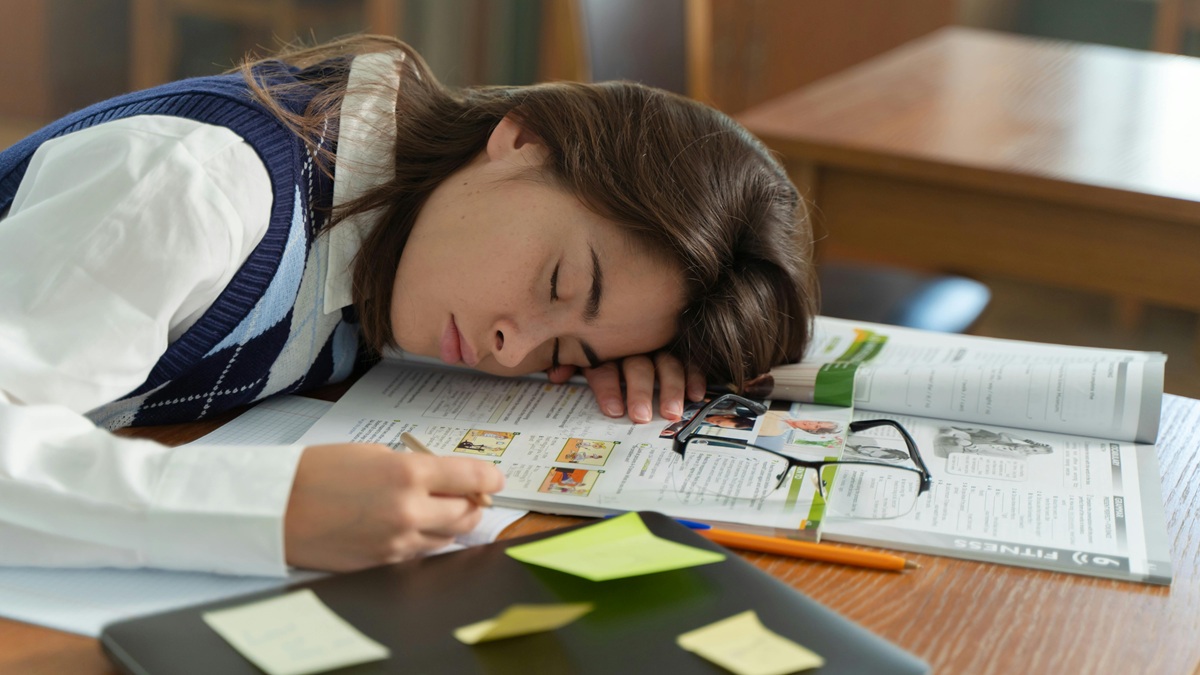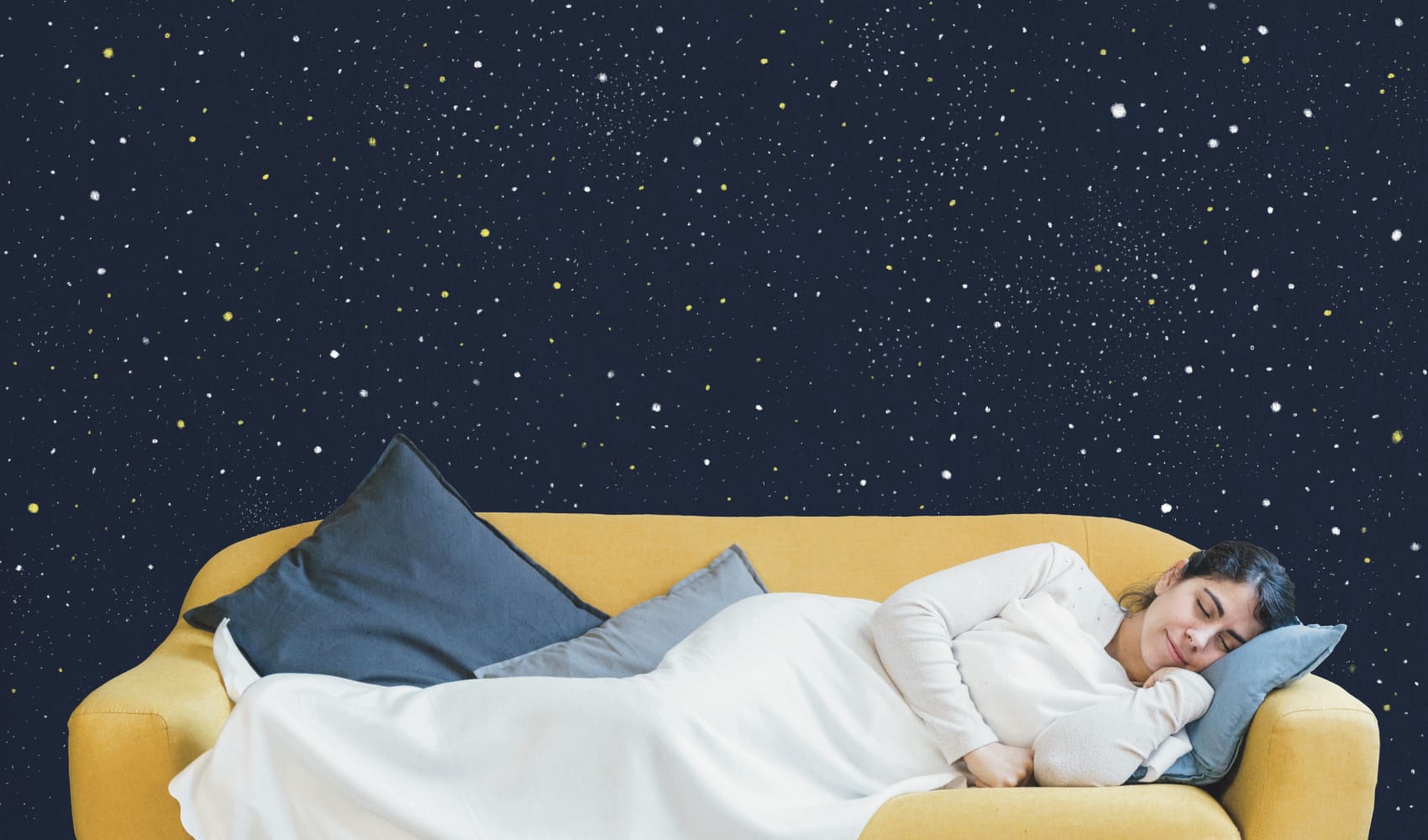Sleep Training for Teens: How Schools Are Helping
Snooze School: How Sleep Training Is Changing Teenagers' Lives
Introduction: Are Our Teens Sleepwalking Through Life?
Think sleep training is just for babies? Think again! While parents have long sought ways to help their infants drift off to dreamland, a new trend is emerging in high schools across the country. Forget counting sheep; schools are now teaching teenagers how to catch some Zzz's. You read that right – sleep class! It might sound crazy, but in a world of endless screens, academic pressures, and social anxieties, a good night’s sleep for teenagers is becoming a rare commodity. As Mansfield Senior High School discovered, sometimes teens need a little guidance in the art of slumber.
The Wake-Up Call: Teens and Sleep Deprivation
Let's face it: teenagers are notoriously sleep-deprived. Studies show that the majority of adolescents aren't getting the recommended 8-10 hours of sleep per night. But why is this happening? It's not just a case of lazy teens staying up too late. There are real, tangible reasons behind the epidemic of sleeplessness.
The Biological Clock Blues
Teenagers experience a natural shift in their circadian rhythm, also known as the biological clock. This shift delays the release of melatonin, the hormone that regulates sleep, making it harder for them to fall asleep early. It’s like their internal clock is stuck on "snooze."
The Screen Time Struggle
We live in a digital age. Smartphones, tablets, and laptops are ubiquitous, and teenagers are constantly bombarded with notifications, social media updates, and the allure of the internet. The blue light emitted from these devices can interfere with melatonin production, further disrupting sleep patterns. How many teens are scrolling TikTok until their eyes hurt and sleep is all but impossible? It’s a common occurrence.
The Pressure Cooker of Academics and Activities
Between demanding coursework, extracurricular activities, part-time jobs, and social obligations, teenagers are often stretched thin. Late nights studying or practicing sports can cut into valuable sleep time. Is it any wonder that some students are napping in class, as seen at Mansfield Senior High School?
Mansfield's Bold Move: Sleep as a Subject
Mansfield Senior High School in Ohio is tackling the teen sleep crisis head-on. Recognizing that many students lack basic sleep hygiene skills, health teacher Tony Davis incorporated a sleep curriculum into his state-required health class. "It might sound odd to say that kids in high school have to learn the skills to sleep," says Davis, "But you'd be shocked how many just don't know how to sleep." It's a testament to the widespread nature of the problem.
What Does Sleep Training for Teens Look Like?
So, what exactly do these sleep training classes entail? It's not about forcing teenagers to nap on command. Instead, it's about equipping them with the knowledge and tools to create healthy sleep habits.
Sleep Hygiene 101
Just like personal hygiene, sleep hygiene refers to habits and practices that promote good sleep. This includes things like maintaining a consistent sleep schedule, creating a relaxing bedtime routine, and optimizing the sleep environment.
Breaking Up with Blue Light
A major focus of sleep training for teens is managing screen time, especially in the hours leading up to bed. Students are encouraged to power down their devices at least an hour before bedtime or use blue light filters. It’s about creating a buffer between the digital world and the land of dreams.
Caffeine and Naps: A Delicate Balance
Caffeine can be a double-edged sword. While it can provide a temporary energy boost, it can also interfere with sleep. Students learn about the effects of caffeine and how to consume it responsibly. Similarly, naps can be beneficial, but long or late-afternoon naps can disrupt nighttime sleep. It’s all about finding the right balance.
Stress Management Techniques
Stress and anxiety are major contributors to sleep problems. Sleep training for teens often includes techniques for managing stress, such as mindfulness meditation, deep breathing exercises, and progressive muscle relaxation. It's about learning how to calm the mind and body before bed.
The Benefits of Better Sleep for Teenagers
Why is sleep training for teens so important? Because the benefits of adequate sleep are far-reaching, impacting virtually every aspect of their lives.
Academic Performance
Studies have shown a strong correlation between sleep and academic performance. Well-rested teenagers tend to have better concentration, memory, and problem-solving skills. Sleep deprivation, on the other hand, can lead to poor grades and increased absenteeism.
Mental and Emotional Well-being
Sleep plays a crucial role in regulating mood and emotions. Lack of sleep can increase the risk of depression, anxiety, and irritability. A good night’s sleep can help teenagers feel more emotionally balanced and resilient.
Physical Health
Sleep is essential for physical health and development. During sleep, the body repairs tissues, strengthens the immune system, and releases growth hormones. Chronic sleep deprivation can increase the risk of obesity, diabetes, and other health problems.
Improved Safety
Drowsy driving is a serious problem among teenagers. According to the CDC, drowsy driving is responsible for thousands of crashes each year. Getting enough sleep can improve alertness and reaction time, reducing the risk of accidents.
Beyond the Classroom: Creating a Sleep-Friendly Home Environment
While sleep training in schools is a great start, it's essential to create a sleep-friendly home environment to reinforce these healthy habits. Parents can play a crucial role in supporting their teenagers' sleep.
Setting Boundaries Around Screen Time
Parents can help by setting clear boundaries around screen time, especially in the hours leading up to bed. This might involve establishing a "no screens" rule after a certain time or encouraging family members to charge their devices outside of the bedroom.
Creating a Relaxing Bedtime Routine
A consistent bedtime routine can signal to the body that it's time to wind down. This might include taking a warm bath, reading a book, or listening to calming music. The key is to find activities that are relaxing and enjoyable.
Optimizing the Sleep Environment
The sleep environment should be dark, quiet, and cool. Blackout curtains, earplugs, and a comfortable mattress can all help improve sleep quality. Think of it as creating a sleep sanctuary.
The Future of Sleep Training: A Growing Trend?
Is sleep training for teens just a passing fad, or is it a sign of things to come? It's likely that we'll see more schools incorporating sleep education into their curricula as the importance of sleep for overall health and well-being becomes increasingly recognized. Perhaps someday, "Sleep 101" will be a standard course offered in every high school.
Addressing the Skeptics: Is Sleep Training Overkill?
Some might argue that sleep training for teens is unnecessary or even infantilizing. After all, shouldn't teenagers be able to manage their own sleep schedules? While this sentiment has some merit, it's important to remember that teenagers are still developing and often lack the self-regulation skills needed to prioritize sleep. It's about providing them with the tools and knowledge they need to make informed decisions about their sleep habits.
The Challenges: Implementing Sleep Training Programs
Implementing sleep training programs in schools can be challenging. It requires buy-in from teachers, administrators, and parents. It also requires dedicated time and resources. However, the potential benefits are well worth the effort. Perhaps incorporating sleep education into existing health or wellness programs would be a practical solution.
The Role of Technology: Can Apps Help Teens Sleep?
While excessive screen time can be detrimental to sleep, technology can also be used to promote better sleep. There are numerous sleep tracking apps, meditation apps, and white noise apps that can help teenagers improve their sleep quality. However, it's important to use these apps responsibly and avoid becoming overly reliant on them.
Expert Opinions: What Sleep Specialists Say
Sleep specialists overwhelmingly agree that sleep training for teenagers is a valuable and necessary intervention. "Sleep deprivation is a widespread problem among adolescents, and it's having a significant impact on their health, well-being, and academic performance," says Dr. [Fictional Doctor's Name], a sleep specialist at [Fictional Clinic Name]. "Sleep training can help teenagers develop healthy sleep habits and improve their overall quality of life."
The Bottom Line: Prioritizing Sleep for a Brighter Future
In a world that often glorifies busyness and productivity, it's easy to overlook the importance of sleep. But for teenagers, sleep is not a luxury; it's a necessity. By teaching teenagers how to sleep, we're investing in their future, helping them become healthier, happier, and more successful individuals.
Conclusion: Reclaim Your Sleep, Reclaim Your Life
Sleep training for teens is more than just a trendy new course; it's a crucial intervention that can transform lives. By understanding the science of sleep, developing healthy sleep habits, and creating a sleep-friendly environment, teenagers can unlock their full potential and thrive. So, let's ditch the all-nighters, embrace the power of sleep, and help our teens reclaim their nights – and their lives!
Frequently Asked Questions (FAQs)
Here are some frequently asked questions about sleep training for teenagers:
- Q: Is sleep training only for people with serious sleep disorders?
A: No! Sleep training is beneficial for anyone struggling to get adequate and restful sleep, regardless of whether they have a diagnosed sleep disorder. It's about establishing healthy sleep habits for better overall well-being.
- Q: How long does it take to see results from sleep training?
A: Results can vary depending on the individual and their specific sleep challenges. However, many people start to see improvements within a few weeks of consistently practicing healthy sleep habits.
- Q: What if my teenager refuses to participate in sleep training?
A: Open communication and collaboration are key. Explain the benefits of sleep and involve your teen in the process of creating a sleep-friendly environment. Start with small, manageable changes and gradually build from there.
- Q: Can I use over-the-counter sleep aids to help my teenager sleep?
A: While over-the-counter sleep aids might provide temporary relief, they're not a long-term solution and can have side effects. It's always best to consult with a doctor or sleep specialist before using any sleep aids.
- Q: Is it ever too late to start sleep training?
A: Absolutely not! It's never too late to improve your sleep habits. Whether you're a teenager or an adult, learning how to prioritize sleep can have a profound impact on your health and well-being.

